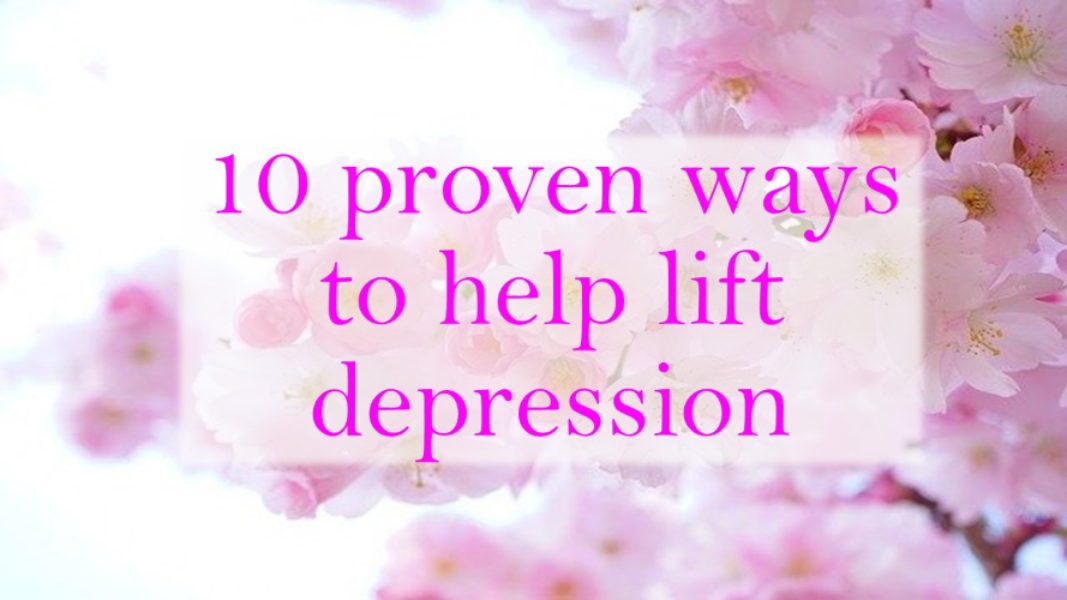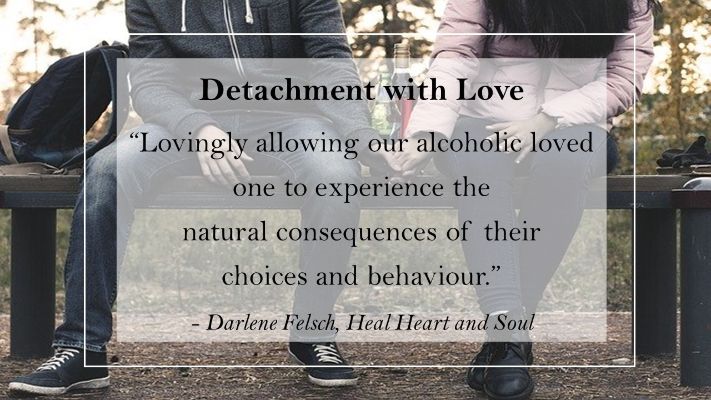Are you struggling with depression?
I know how you feel.
I’ve lived with depression on and off for 25 years.
Something that can be helpful is the ‘Opposite Principle’.
You take notice of how you feel and then you make a decision to do the opposite.
Here are 10 examples:
1. When I’m depressed, I want to binge on sugar
When I’m depressed, I want to eat loads of sugar. This is the worst thing I can do. I have found that eating too much sugar, leaves me depressed, anxious and unable to cope.
So if you feel like binging on sugar (or something equally unhealthy), remind yourself to push against this and do the opposite.
What would the opposite be? Well, anything except sugar.
The key to this is to plan ahead. On a day where you are feeling OK, go shopping ahead of time and choose snacks and meals that are yummy but not full of sugar.
This might mean keeping mini packets of pre-made popcorn in the cupboard. Buy the one that is already made, because when you are depressed, you won’t have the energy or inclination to cook anything. Even the effort of cooking microwave popcorn can feel too much, when you would rather have the family block of chocolate that is there, ready to be devoured.
Try snack-size portions of nuts.
Keep plenty of fruit on hand, so that it’s easier to choose the healthier option and stay away from the sugar.
One thing I love to have on hand are chocolate protein bars that do not have any added sugar in them. They are generally delicious and give you the taste of chocolate without actually eating the harmful sugar in regular chocolate.
Or if you like to cook, one day when you are feeling OK, cook things ahead of time, like low-sugar muffins, cakes and biscuits. Then you will have healthy options on hand, for days when you are feeling flat.
2. When I feel depressed, I want to stay in bed all day, hide under the blankets and wish the world away.
What would the opposite be? Let yourself sleep in, but not too much.
For example, you might usually get up at 6am, but when you feel depressed, you’d rather sleep in until lunch time.
So when you feel depressed, set an alarm for about 9am. So you still get a nice, relaxed sleep in, but you don’t stay in bed too long.
You learn from experience, that while you might not want to drag yourself out of bed until lunch time, this actually leaves you feeling worse.
When you sleep too much, it can actually leave you feeling exhausted!
You generally feel more lethargic and foggy headed the longer you stay there.
The other reason not to sleep in until lunch time, is that it will muck up your sleep that night.
Because you got up so late, it will mess up your body’s natural sleep rhythm and you will either not be able to get to sleep at bed time, or you will have a really disturbed sleep, waking up all through the night tossing and turning. This will leave you feeling totally wiped out the next day.
3. When I am depressed, I don’t want to have a shower
or get dressed.
I just want to stay in my pyjamas and dressing gown all day, especially if I don’t have to go anywhere that day or I know I won’t be seeing anybody.
But it’s amazing how just having a shower and getting dressed can give you a lift.
I don’t know why it helps. Maybe just having the warm water running over your head…I don’t know. But it really helps.
When I make myself go and have a shower and get dressed, I feel a definite improvement in my mood.
Also, if you are dressed, you are more likely to go out somewhere, which is good for you.
You might have a friend who wants to come and visit you and if you hadn’t got dressed, you might tell them not to come. But when you are showered and dressed, you are more likely to say ‘yes’ when a friend wants to come over.
Both going out of the house and seeing a friend are incredibly helpful when you are feeling low.
4. When I’m depressed, the last thing I feel like doing is exercise.
It’s hard to get motivated to exercise when you are feeling good, but it is almost impossible when you are feeling depressed.
The thing is – just a 5 minute walk outdoors can help to lift your mood. It doesn’t take much to help.
The exercise, the fresh air and the sunshine, all work together to help you feel better.
Perhaps not completely better, but a lot better than you will feel if you don’t do this.
Just walking 5 or 10 minutes to the park and sitting on the park bench for an hour will help you feel better.
There’s probably no way you are going to be able to get motivated for a full work-out, but anyone can manage a gentle 5 minute walk.
Remember, do the opposite of what you feel like doing.
5. When I’m depressed, I can’t get motivated to do anything.
When you are feeling depressed, it takes a mammoth effort to do the slightest thing.
But if you can just set yourself one or two very small goals for the day, you will feel a sense of accomplishment once you’ve done them.
I’m talking about tiny things, like going going to the green grocer to buy some fresh fruit and vegetables or spending 10 minutes weeding your garden.
And if you can’t manage this, then make the previous steps into small goals.
- Get up by 9am
- Have a shower
- Get dressed
- Go for a 5 minute walk
That’s four whole things. Even doing two of these things is an accomplishment when you are feeling very depressed.
Don’t try to achieve any big goals, just tiny ones.
6. When I’m depressed, I lock myself away and don’t want to talk to anyone.
This is maybe one of the hardest ones – it is for me anyway.
When I am feeling depressed, I have no energy to make the effort to ring anyone.
And if a friend wants to come and visit, I convince myself that I’m too sad to see them. You tell yourself ‘they won’t want to spend time with me if I’m depressed, so I’ll just say ‘no’.
I always feel like this when I’m depressed.
But when I explained this to a friend years ago, she asked me, ‘but what if I was the one depressed? Would you not want to see me because I’m depressed?’ I said ‘Of course not, I would want to be there for you if you are feeling down. I would want to try and help.’ ‘Exactly!’ she said. So true friends will want to spend time with you even if you are depressed.
This can sometimes be extra hard as depression can make you feel worthless. You don’t feel ‘worthy’ of someone spending time with you when you are depressed.
But true friends love you no matter what.
They love you in the good times and the bad.
If you are feeling depressed, pick up the phone and call someone you trust.
And if they want to come and visit or go out for a coffee, say ‘yes’.
This one thing – more than any other – can really help you to feel better.
And a note back to having a shower and getting dressed – a true friend won’t care whether you are dressed or not, but if you are not dressed, and your friends asks you out for coffee, the effort to get dressed will probably feel too much and you won’t go.
If you are dressed, then you will generally be able to muster the energy just to hop in the car and drive there.
7. When I am depressed, I only see the negative things in my life.
Make a habit of writing down five things you are thankful for every day. This doesn’t have to be anything big.
It could be just being grateful that your arms and legs work or being grateful that you have fresh drinking water. It doesn’t matter what you write down. The point is to help you realise that there are good things in your life, even when they are hard to see.
By writing down 5 – 10 things you are thankful for every day, you can go back and read this on ‘down days’ and remind yourself that there are good things in your life.
8. When I feel depressed, I don’t feel like doing anything to help myself – not even listen to music.
Listening to music can be one of the most healing things you can possibly do if you are feeling depressed.
Make a play list on your phone of songs that always make you feel happy and energised or music that makes you feel calm and at peace.
By having this play list ready, you won’t have to think about it at the time. All you need to do is get out your phone and press play.
Music is energising and calming and can have a really positive impact on your mood.
9. When I feel depressed, I sometimes forget to take my medicine or wonder if it’s really helping.
It is absolutely essential that you take your medication – especially if you are on medication for depression.
Sometimes, we think to ourselves ‘it isn’t helping, why bother’, but the worst thing you can do is go off your medicine.
While it may not feel like it is helping you on a specific day when you feel down, it is helping you to feel better on all the other days. Take your medication.
10. When I feel depressed, I don’t feel like seeing my doctor or health professional
Keeping in touch with your doctor or other health professional is essential when you are feeling depressed.
For one thing, it really helps to talk about how you are feeling.
Just expressing it to someone else can take a huge weight off your shoulders and make you feel better.
Your health professional may have some good suggestions of things you could do to help yourself feel better.
They may recommend some music, books, audio books or podcasts that will really help to pick you up.
They may remind you of some coping mechanisms that you have talked about before.
They may help you see things in a new light.
All of these things can be a tremendous help when you feel depressed.
And they may need to adjust or change your medication. It’s important to see your doctor regularly to make sure that the medicine you are on is right for you.
The thing is – often you know what you should do – but when you are depressed, you don’t want to do anything.
So in summary, when you are feeling depressed, try doing the opposite of how you feel.
- When you feel binging on sugar, choose something healthier – popcorn, nuts, fruit etc.
- When you feel like staying in bed all day, set your alarm for 9am – allow yourself to sleep in, but not all day.
- When you don’t feel like having a shower or getting dressed – do the opposite – get in the shower and get dressed
- When you don’t feel like exercising, do the opposite. Go for a 5 or 10 minute walk and sit on a park bench in the sunshine.
- When you can’t get motivated to do anything, sell yourself 1 or 2 tiny goals for the day. This will give you a sense of accomplishment.
- When you want to isolate yourself away from others, reach out to a friend or family member you trust.
- When everything looks negative, think of 5 things that you can be thankful for or just re-read things you’ve written on other days when you felt better.
- When you feel bored and hopeless, press play on your special play list of songs that always help you feel more energised or ones that make you feel calm and at peace.
- When you can’t be bothered taking your medicine or feel tempted to stop – do the
opposite. Always take any medication you have been prescribed.
- When you don’t feel like going to see your doctor or health professional – reach out to them. It helps having a professional to talk to when you are flat. They may have some ideas that can really help you and they are able to gauge how well your medication is working.
There is no magic cure for depression, but there are definitely things you can do to help yourself when you are feeling depressed.
On days when you are feeling happier and stronger, plan ahead for days when you are not feeling so good – buy healthy foods, cook, write down all the things you are thankful for, create a play list of songs that make you feel happy.
If there’s one thing I’ve learned after suffering from depression for the last 25 years, it doesn’t last forever! It always lifts eventually.
Try doing the ‘opposite’ – but it really works.















